Electric Dreams: can Pakistan join the EV Revolution?
Pakistan's electric vehicle landscape is abuzz, but can the nation overcome infrastructure hurdles?
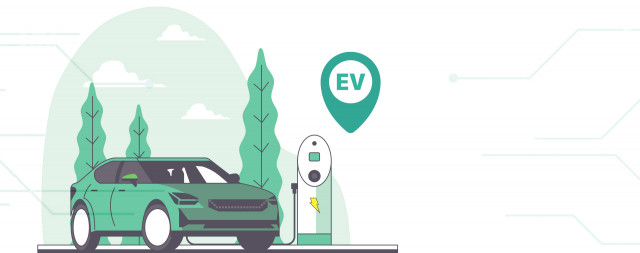
Forget the familiar roar of exhaust pipes and the smog-choked streets. A different soundtrack is emerging in Pakistan's urban jungles – the gentle whir of electric motors and the soft hum of progress. The dust plumes on Pakistan's roads are slowly giving way to the whisper of electric motors. The nation, long accustomed to the rumble of gasoline engines, is witnessing a silent revolution on wheels. From humble electric rickshaws zipping through bustling bazaars to sleek electric buses gliding down newly-paved avenues, the electric vehicle (EV) landscape is buzzing with possibilities.
This isn't just a technological shift; it's a cultural transformation for a country hungry for cleaner air and quieter streets. Pakistan's EV journey is picking up speed, with motorbikes buzzing past curious onlookers, and car showrooms showcasing futuristic electric sedans alongside rugged SUVs. But is the infrastructure ready for this green wave? Are charging stations sprouting like roadside chai stalls? Most importantly, are drivers prepared to trade petrol pumps for charging plugs?
The government of Pakistan approved an ambitious National Electric Vehicles Policy (NEVP) in 2019 with the goal of electric vehicles comprising 30 percent of all passenger vehicle and heavy-duty truck sales by 2030, and an even more ambitious target of 90 percent by 2040. For two- and three-wheelers, as well as buses, the policy set a goal of achieving 50 percent of new sales by 2030 and an impressive 90 percent by 2040. This forward-looking policy reflects a commitment to transitioning the country's automotive sector toward sustainable and environmentally friendly transportation solutions.
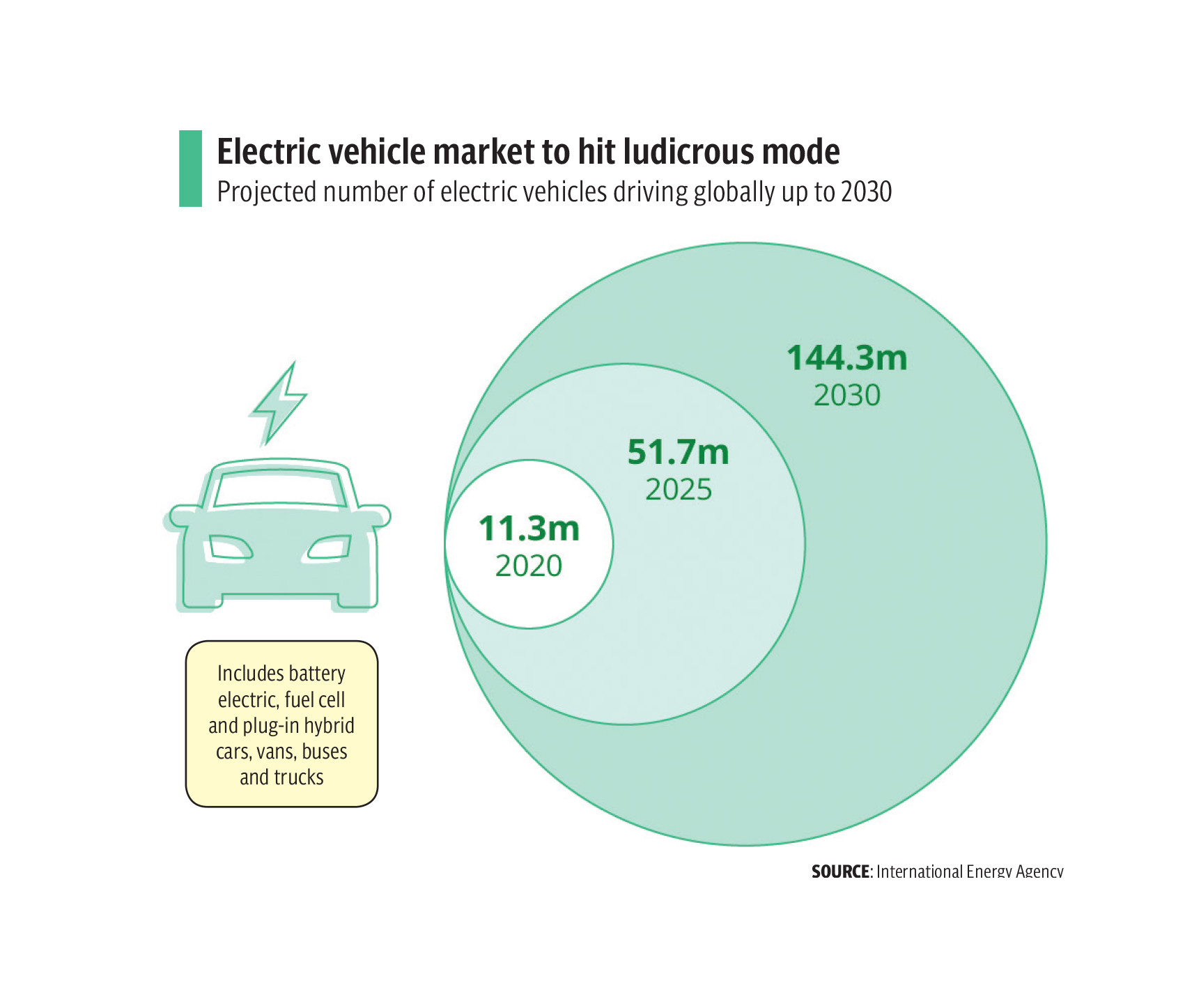
Two-wheeler manufacturers taking the lead
In the heart of Pakistan's electric vehicle (EV) surge, two and three-wheeler manufacturers have emerged as the vanguards of a new era of sustainable mobility. These local champions, armed with manufacturing licenses under the Electric Vehicles (EVs) Policy 2020–2025, are not merely assembling vehicles, they are laying the foundation of Pakistan's EV landscape.
One such trailblazer is Velktra, a dynamic E-Motorbike company fully committed to the local production of electric motorbikes. The co-founders Fatiq Bin Khursheed and Syed Raza Mohsin who both moved from New York to launch a revolution in the motorbike sector in Pakistan. In an interview with The Express Tribune, the founders of Velktra talk about the intricate details of their manufacturing process, and what impedes the progress of the EV industry. From the humming assembly lines to the collaborative spirit driving innovation, Velktra embodies the spirit of a two-wheeled revolution.
Vlektra established its manufacturing plant in 2020 but faced delays in commencing production due to challenges in obtaining a Letter of Credit (LC). The first manufacturing plant became operational in September 2023, with full-scale production starting at that time.
Mohsin explained his decision to move to Pakistan, stating, "We observed that the number of motorcycle owners worldwide is much higher than the number of car owners. Thus, we decided to return to our homeland and lay the foundation for E-Motorbikes in Pakistan."
According to statistics from the Pakistan Bureau of Statistics (PBS), 53 percent of households in Pakistan own a motorbike compared to nine percent who own a car. Khursheed mentioned that the official number of motorcycles on the road in Pakistan is around 27 million, while the unofficial number is even higher.
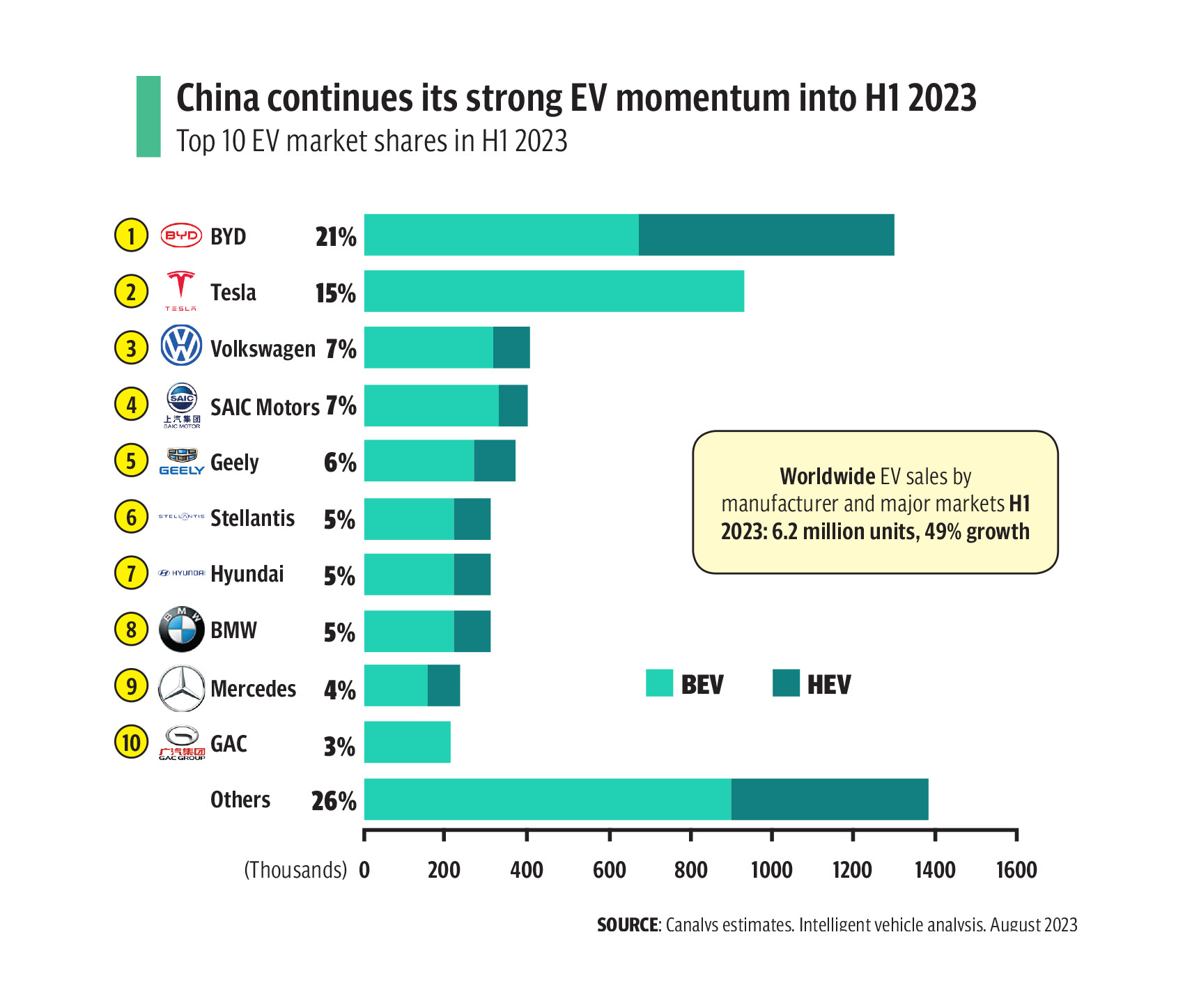
Vlektra drew inspiration from Tesla, aiming to emulate its success. Mohsin emphasised the significance of their research and development department, which, inspired by their experiences in the United States, has been exceptionally active. Over the past year, Vlektra introduced more features than any other brand in Pakistan has achieved in five years.
Discussing the batteries used in their EVs, Khursheed noted the inadequacy of lead-acid batteries, highlighting their use in products with lower power requirements. He explained the advantages of lithium batteries, emphasising their maintenance-free nature and robust performance capacity. Vlektra claims to be the first to introduce lithium batteries in EVs, using technology similar to that employed by top global EV brands.
Despite challenges, Mohsin and Khursheed chose to establish their plant in Pakistan, recognising the absence of major players in the E-Motorbike market. They aimed to change traditional motorbike designs and offer consumers premium products at affordable prices.
Vlektra gained recognition at COP28, with their bikes listed among the top 10 attractions at the conference. Mohsin highlighted that every product of the motorbike is manufactured in Pakistan, except for the batteries which are imported due to the economic impracticality of setting up a lithium battery plant. “From design to every bike component, everything is made in Pakistan,” he said.
In the primary motorcycle market on Akbar Road in Karachi, Sabir Sheikh, the proprietor of several shops, has noted a shift in consumer behaviour.
"Purchasers of motorcycles are now expressing interest in electric bike, scooty, and scooter alternatives. I believe many have delayed the purchase of a conventional two-wheeler, anticipating the imminent arrival of an electric two-wheel model that better suits their requirements," stated Sheikh, who also serves as the Chairman of the Association of Pakistan Motorcycle Assemblers (APMA).
Sheikh plans to establish his own company to produce two-wheel electric vehicles, assemble them, and retail the electric bikes. Previously he operated a motorcycle manufacturing company named Sitara. Additionally, Sheikh has already introduced electric scooters for sale at his stores. This proactive strategy reflects the growing interest and demand for electric vehicles in the market.
Sheikh noted that there are presently approximately seven to eight companies engaged in completely knocked-down (CKD) imports, implying that they are assembling electric bikes in Pakistan.
"Currently, about 1,000 electric bikes are being assembled in Pakistan every month,” Sheikh stated. “The landscape is evolving rapidly, and I anticipate the number to increase to 4,000-5,000 by June 2024. I am acquainted with individuals who have purchased electric bikes, and they express satisfaction as it is saving them up to 15,000 rupees monthly on fuel expenses," he added.
In the sun-drenched heart of Karachi, where the salty breeze carries the scent of street food and laughter, Rashid, a delivery driver with calloused hands and a weathered smile, rests his dusty helmet on the handlebars of his old motorbike. The engine coughs and grumbles, a familiar symphony of wear and tear that has defined his days for years. But Rashid's gaze is drawn to a sight that raises his eyebrows – a sleek Vlektra Bolt parked nearby, its silent engine a stark contrast to Rashid’s own sputtering beast.
"These electric bikes," he muses, tracing the Bolt's smooth curves with his blistered thumb, "they whisper stories of change, of cleaner air and pockets heavier than fumes." The allure of a silent ride on Karachi's bustling streets, free from the oily coughs and deafening roars, is undeniable. Yet, a shadow of doubt lingers in his eyes.
"Affordability, brother," he sighs, his voice tinged with the practical wisdom of a man who counts every rupee. "My gasoline motorbike might be a dinosaur, but it doesn't guzzle the money I earn with my sweat. These electric beauties, they sing like sirens, but can they keep my family fed?"
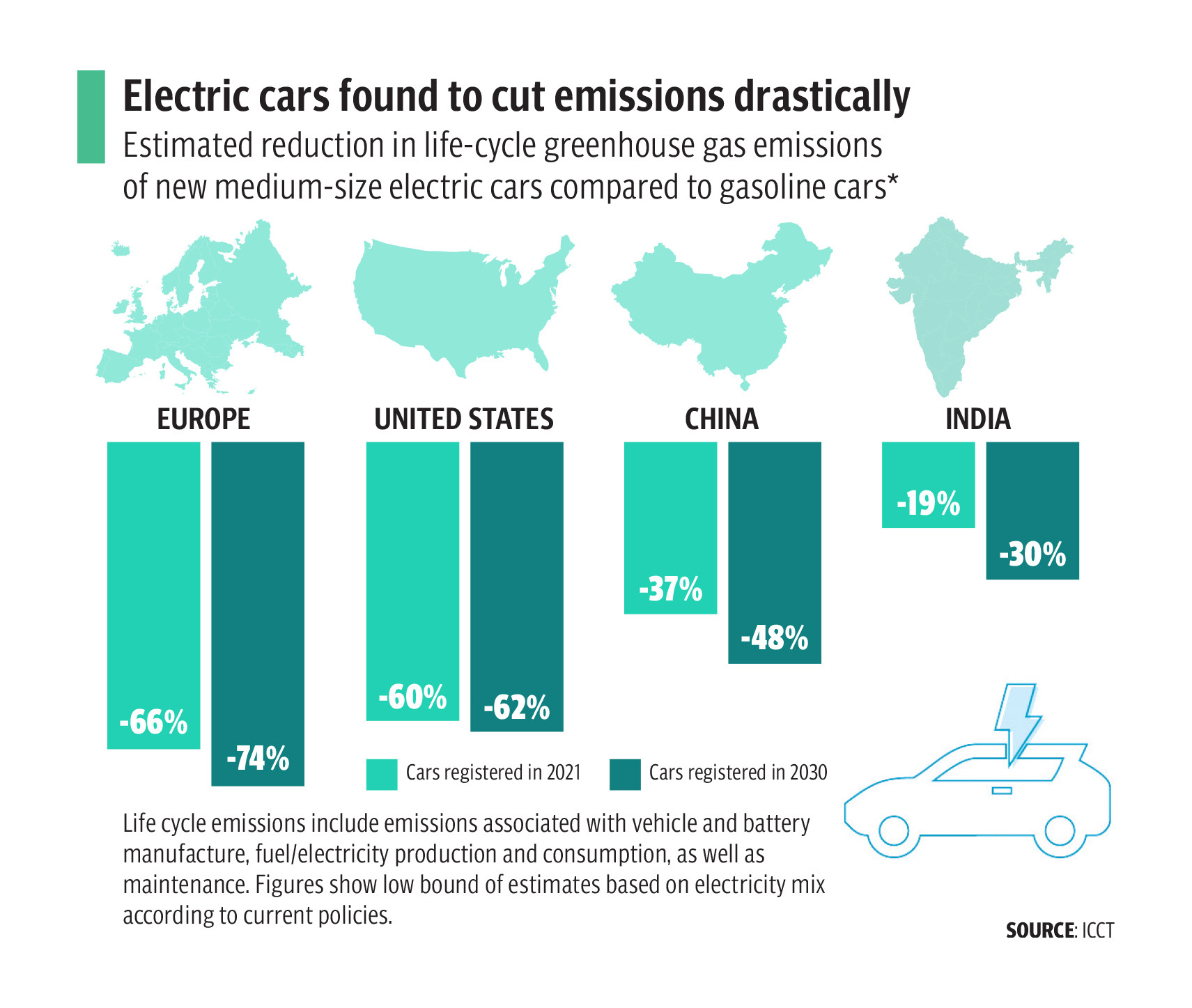
The upfront cost of EVs, despite the promised long-term savings, is formidable for Rashid. He thinks of the extra shifts he works, and the meals he sometimes skips, all to keep his Bajaj chugging and his family afloat. Could an electric bike, with its untested waters of charging and battery costs, become another burden instead of a liberation?
Range anxiety, too, casts a long shadow. "Karachi's roads are a maze," he gestures towards the sprawling cityscape. "My bike can find fuel anywhere, a corner shop, a friendly mechanic. But where do you plug in an electric heart when you're lost in the belly of the city, miles from home?"
Despite the hesitations, a flicker of hope dances in Rashid's eyes. "They say new charging stations are coming, like oases in a desert," he muses, a hint of optimism peeking through his concerns. "And maybe, just maybe, if the government could give us a helping hand, a discount on these silent steeds, the roads of Karachi might finally echo with the whisper of progress."
Rashid isn't the only one facing concerns and complexities of being a middle-class man witnessing the cusp of an EV revolution. He represents the practical dreamer, the environmentally conscious soul waiting for the stars to align before leaping towards a cleaner future.
Considering this, Vlektra has introduced installment plans with a 50 percent down payment. Even then, for a middle-class person, it may be an investment they are not ready to make. Mohsin said, “If people calculate their annual fuel cost and the amount required to charge the E-motorbike, the overall cost won't be much.” On average, a motorbike owner incurs expenses of 7,000-8,000 rupees per month, including fuel and maintenance, totalling around 100,000 rupees annually. This cost can be significantly reduced as the cost of the E-Motorbike is 0.8 rupee per kilometre, compared to gasoline-run motorbikes with costs ranging from seven to 10 rupees per kilometre.
Other than Vlektra, there are brands like Jolta who are also making progress in this category while the famous brand of Pakistan Honda has also introduced the electric scooter Benley e. However, the price range is much higher for the Benley than the other brands.
Jolta electric motorbikes boast a familiar shape and design akin to conventional motorcycles; however, their distinction lies in their power source — electric batteries instead of petrol. Manufacturers have prioritized maintaining the integrity of the bikes' engine and body parts, ensuring they are equipped with technology reminiscent of established Japanese counterparts in the market.
Usman Sheikh, the CEO of Auj Technologies, a Lahore-based electric motorcycle company, shared insights into their upcoming venture. Auj Technologies is actively developing an electric bike that aims to be budget-friendly, and interestingly, it carries the moniker "Jaguar," named after the animal. This signals an effort to provide an eco-friendly alternative and also cater to a wider consumer base by addressing affordability concerns.
Four-wheeler waiting for the green light
While electric two-wheelers hum merrily through Pakistani streets, their four-wheeled counterparts remain parked in the shadows of hesitation. Local manufacturers, giants of the gasoline age, seem reluctant to shift gears towards electrification, leaving the market dominated by imported EVs and a lingering question: why the electric pause?
Forging a new path isn't cheap. Developing and manufacturing electric cars requires significant upfront investment in research, infrastructure, and skilled personnel. Many local companies, accustomed to the familiar terrain of gasoline engines, view this leap into the unknown with trepidation. The potential return on investment remains hazy, shrouded in questions about charging infrastructure, consumer demand, and government support.
Imagine charging your car not at a gas station, but at a specialized, often scarce, charging point. This is the current reality for electric car owners in Pakistan. The lack of a robust charging network acts as a formidable barrier, deterring both manufacturers and consumers. Without convenient and reliable charging options, electric cars risk becoming stranded islands in a sea of gasoline.
Picture yourself on a road trip, the highway stretching before you, but a nagging worry gnawing at your mind - will the battery last? Range anxiety, the fear of running out of charge before reaching your destination, remains a major concern for potential EV buyers. Limited battery range, exacerbated by Pakistan's often-challenging terrain and inadequate charging infrastructure, puts a dampener on the electric car dream. The world's longest electric car journey without recharging was 517 miles (832 km) achieved by a Tesla Model S in 2022.
Imagine navigating a maze of unclear regulations and ambiguous incentives. This is the landscape local EV manufacturers face in Pakistan. Government policies, while evolving, lack the clarity and consistency needed to attract significant investment. The absence of long-term incentives like tax breaks or import duty reductions makes the switch to EVs seem financially risky and unstable.
As of now, no four-wheel manufacturer has approached the government for a license under the Electric Vehicles (EVs) policy, according to Asim Ayaz, General Manager Policy at the Engineering Development Board (EDB).
Ayaz stated, "One or two companies are working on EV four-wheelers. However, we have not received any formal requests for licenses thus far. We believe that EV penetration will be more prominent in 2-3 wheelers, as indicated by the interest shown by manufacturers, and this transition is expected to happen rapidly."
He further explained that the electrification of two- and three-wheelers would likely precede the shift to electric cars, but the latter would occur at a slower rate. Ayaz added, "The electrification of cars will be followed by buses on fixed routes." This suggests a phased approach to the adoption of electric vehicles, starting with smaller vehicles and gradually expanding to larger ones.
Khalid Hussain, is a successful businessman and self-proclaimed tech enthusiast. He's intrigued by the sleek lines and silent hum of electric cars, but his pragmatic side hesitates. "The charging stations are few and far between," he sighs, tracing the map of a planned road trip with his finger. "And what if I get stuck in the middle of nowhere with a dead battery?"
This is a concern for many. He's willing to embrace the future, but the road ahead feels bumpy and uncertain. Without a government roadmap that addresses infrastructure, range anxiety, and financial incentives, the four-wheeled electric revolution in Pakistan risks stalling in the starting blocks.
Challenges and opportunities
In Pakistan's quest to embrace EVs, a journey marked by challenges and opportunities is unfolding, shaping the landscape of sustainable transportation. One of the foremost challenges lies in the country's existing infrastructure, particularly the limited availability of charging stations. The establishment of a comprehensive and accessible charging network is crucial to alleviate "range anxiety" among potential EV users. Without a robust infrastructure, the fear of being stranded with a depleted battery remains a significant deterrent to widespread EV adoption.
Another formidable challenge arises from the high initial costs associated with EVs, presenting a financial barrier for both manufacturers and consumers. The investment required for advanced battery technology and electric drivetrains contributes to elevated vehicle prices, dissuading many from making the transition. In a nation where economic considerations play a pivotal role in consumer choices, the affordability of EVs becomes a key determinant in their acceptance.
Moreover, there is a need for comprehensive regulatory frameworks and incentives to stimulate the EV market. Clear policies addressing issues such as manufacturing standards, emissions regulations, and incentives for both manufacturers and consumers are crucial for fostering a conducive environment for the electric transition.
According to Khursheed, the policies and frameworks are made, but they are never implemented. “The EV policy only offers a 1% duty on imports. Other than that, there is no subsidy for this industry. They have not offered any plans to give relief to the consumers and encourage them to shift to EVs. The main issue is the infrastructure. Although motorbikes can be charged at home overnight, for longer routes, this cannot work,” he said.
Mohsin added Vlektra plans to place charging stations all around the city of Karachi, which will help E-Motorbike owners move more smoothly. Infrastructure challenges extend beyond charging stations to encompass the availability of spare parts and skilled technicians for EV maintenance. A shortage of these essential components may impede the long-term viability of EVs in the Pakistani market, where an established network of service centres for traditional vehicles currently prevails.
Mohsin shared that for two-wheelers, the motorbike is maintenance-free and only requires charging. “The parts are made here in Karachi, so if an owner wants any part of the Vlektra, they can easily get it from our showrooms,” he said, adding that the battery life of these motorbikes is around seven years.
The existing energy mix in Pakistan, heavily reliant on fossil fuels, poses a dual challenge. On one hand, transitioning to EVs might be hindered by concerns about the environmental impact of electricity generation. On the other hand, the shift towards a cleaner energy mix is imperative for maximizing the environmental benefits of electric vehicles.
While these challenges loom large, they cast shadows against a backdrop of immense opportunities. The transition to electric vehicles presents a unique chance for economic growth, job creation, and environmental sustainability. By strategically addressing these challenges, Pakistan can pave the way for a greener and more prosperous future.
Mohsin also highlighted the need for a body for EVs where all EV manufacturers can raise their voices for the necessary amendments and additions to the EV policy. “Local manufacturers face a number of problems, and we have tried talking to the government, but one company cannot make an impact; we all have to come together if we want to grow this market faster,” he added.
Charting the future of EVs in Pakistan
As the wheels of Pakistan's electric revolution gain traction, the conclusion is not a culmination but a juncture—a juncture where challenges and opportunities converge, and the future of electric vehicles (EVs) in the nation takes shape. The journey, marked by the resounding success of two and three-wheeler manufacturers like VELKTRA, Jolta and Sazgar Engineering Works, underscores the undeniable potential of sustainable transportation. Yet, the hesitancy of four-wheeler manufacturers and the uphill climb to establish a robust EV infrastructure pose challenges that demand strategic solutions.
The Ministry of Climate Change remains optimistic, noting the gradual yet perceptible rise of electric buses and bikes, becoming increasingly common sights on Pakistan's roads.
Amidst challenges, the opportunities for economic growth, job creation, and environmental sustainability shimmer on the horizon. The success stories of electric bikes and cars gracing showrooms, and the collaborative efforts of industry and government, collectively paint a vibrant picture of the electric future. As Pakistan charts its course in the realm of EVs, this juncture becomes a pivotal moment—a moment where challenges propel innovation, where opportunities foster progress, and where the wheels of change continue to roll toward a greener, sustainable horizon.

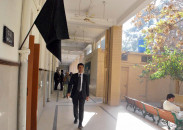
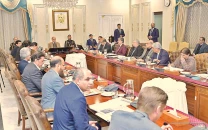

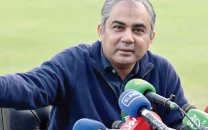
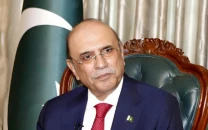












COMMENTS
Comments are moderated and generally will be posted if they are on-topic and not abusive.
For more information, please see our Comments FAQ